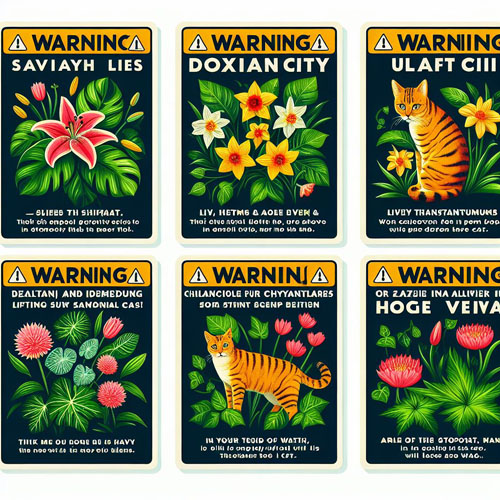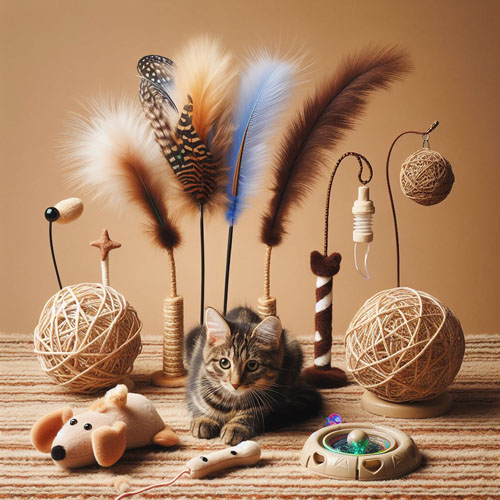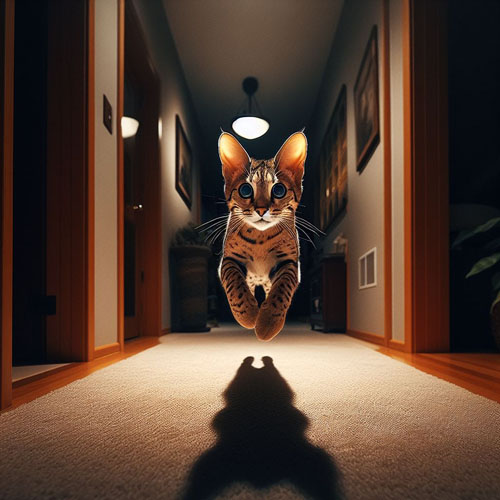Feline First Aid: Assisting Your Savannah Cat in Times of Need
As a responsible pet owner, it’s crucial to equip yourself with the knowledge and tools required to provide adequate first aid to your beloved Savannah cat. Accidents and emergencies can happen at any time, and being prepared can make a significant difference in your feline companion’s well-being. In this article, we will explore the essential steps and items you should have on hand to administer effective feline first aid.
One of the first steps in feline first aid is understanding basic cat behavior. Unlike humans, cats may attempt to hide signs of discomfort or injury, making it essential to stay vigilant and observant. Changes in behavior, such as hiding, decreased appetite, or excessive grooming, could indicate a potential health issue. Identifying these early warning signs can help you act promptly and efficiently.
In the case of an emergency, it’s crucial to remain calm and composed. Panicking may worsen the situation and hinder your ability to provide proper assistance. Take a deep breath, assess the situation, and prioritize your cat’s well-being.
Having a well-stocked first aid kit specifically designed for cats is essential. The kit should include items such as sterile gauze pads, adhesive tape, antiseptic solution, hydrogen peroxide, cotton balls, a rectal thermometer, and a pair of blunt-end scissors. These items can help you administer immediate care and prevent potential complications.
- It is recommended to have a supply of absorbent cotton readily available.
- Ensure that you have sterile gauze pads with sufficient thickness for effective bandaging.
- Gauze tape should also be included in your first aid kit for proper bandaging purposes.
- Hydrogen peroxide is an essential item to have on hand for cleaning wounds.
- Hydrocortisone ointment is beneficial for treating skin irritations and inflammations.
- When selecting scissors, opt for a small size with rounded tips if possible.
- A pair of tweezers is useful for removing splinters or foreign objects from the skin.
- Keep a clean, white cotton sock available to cover an injured paw, which helps
- A rectal thermometer is necessary for monitoring your cat’s temperature.
- Syringes without needles, in various sizes such as 3 cc, 6 cc, and 12 cc, are valuable for administering oral medications and providing nourishment to weak cats and kittens.
- A bulb syringe is useful for suctioning out mucous from the nose and mouth.
- Lastly, a flashlight is essential for conducting thorough examinations of your cat.
Understanding basic first aid techniques is vital when it comes to feline emergencies. For instance, if your Savannah cat suffers from a small wound, it’s essential to clean the area gently with an antiseptic solution and cover it with sterile gauze. This will protect the wound from further contamination and provide a suitable environment for healing. Keeping the bandage on my require an elizabethan collar (also called an e.collar, a cone o
In case your cat suffers from an injury that involves bleeding, applying direct pressure to the wound may be necessary to control the bleeding. Using a clean cloth or gauze, press firmly but gently on the affected area. It’s important to avoid tourniquets or any constricting materials, as they may lead to further complications.
Another aspect of feline first aid includes knowing how to handle situations such as choking or respiratory distress. If your cat is struggling to breathe, it’s crucial to remain composed and assess the situation quickly. If you can identify the foreign object causing obstruction, gently remove it. However, if you are unsuccessful, seek immediate veterinary attention.
Being aware of potential hazards in your cat’s environment can also prevent accidents. Keep harmful substances, such as cleaning products and medications, out of your cat’s reach. Additionally, secure windows and balcony access to prevent falls, which can cause severe injuries.
Although first-aid measures can be essential, they are not meant to replace professional veterinary care. Seek immediate veterinary attention in cases of significant trauma, excessive bleeding, broken bones, or any situation where your cat’s life may be at risk. Your veterinarian will be able to provide the necessary expertise and ensure your feline companion receives appropriate medical treatment.
In conclusion, feline first aid is an invaluable skill for any Savannah cat owner. By recognizing early signs of distress, having a well-equipped first aid kit, and understanding basic first aid techniques, you can provide immediate care to your cat in times of need. Remember to remain calm, prioritize your cat’s safety, and seek professional veterinary attention when necessary. With proper preparation and knowledge, you can be well-equipped to handle any emergency that may arise and ensure your Savannah cat lives a healthy and happy life.





